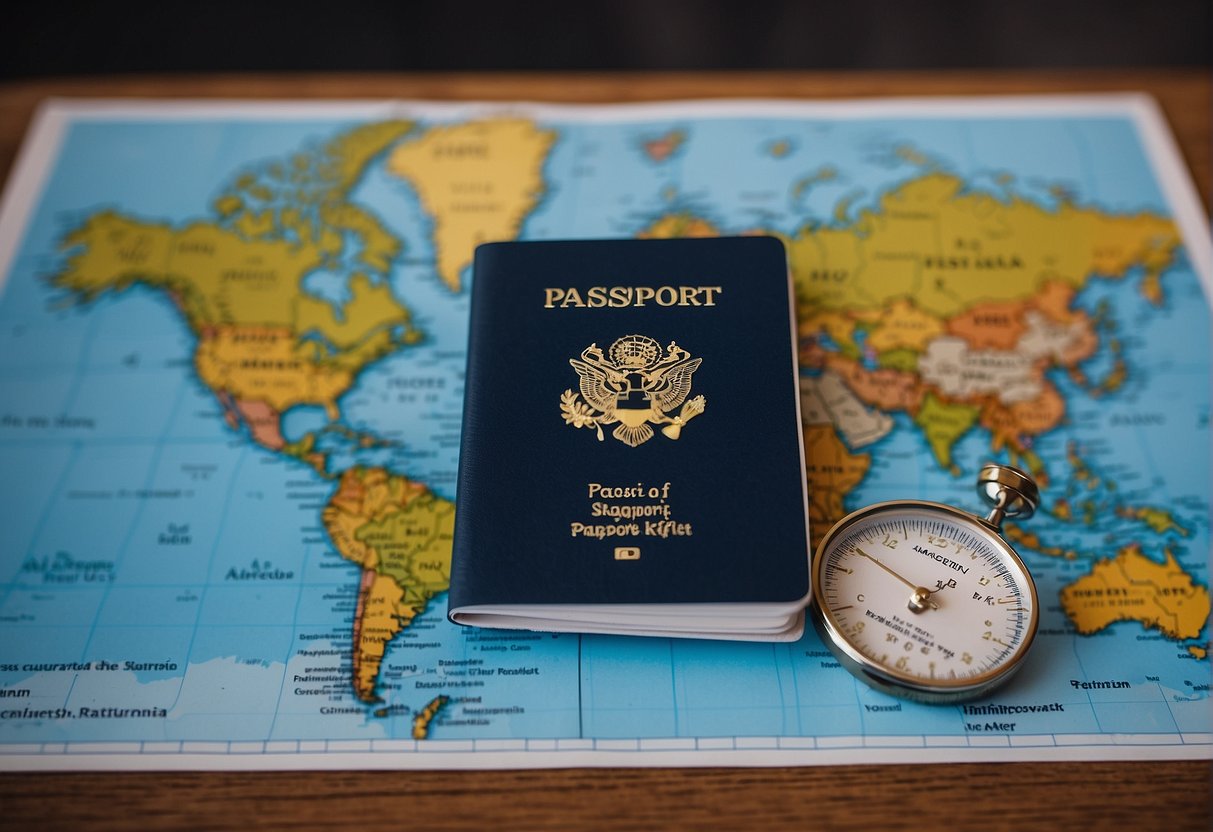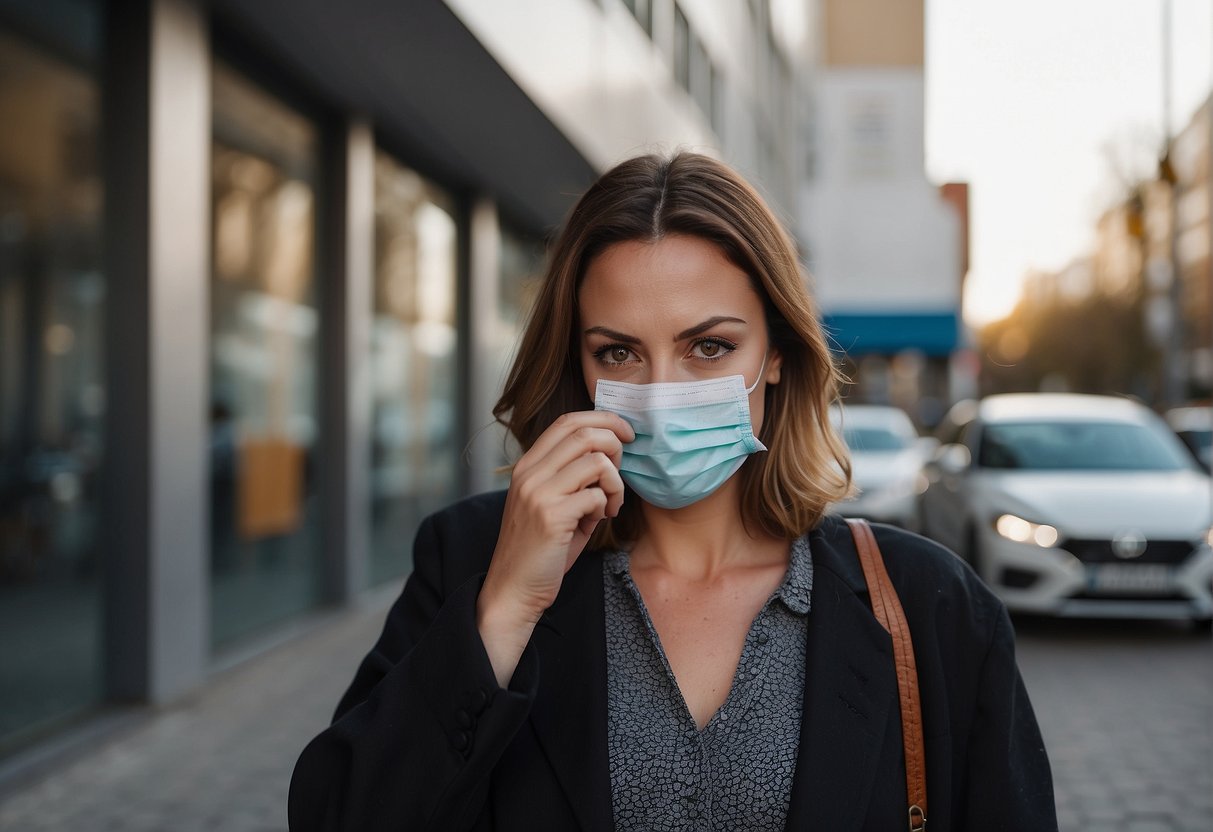As the world continues to navigate the complexities of the COVID-19 pandemic, international travel has adopted new protocols to ensure passenger safety. Travelers need to be aware of the varying testing requirements for entry into different countries, as these can differ widely in terms of the type of test accepted and the time frame within which a test must be taken before arrival. Navigating these requirements is essential for those planning to travel abroad.

Timing is a critical factor when arranging COVID-19 tests for international travel. Tests typically need to be taken within a certain window, often 48 to 72 hours prior to departure, depending on the destination. Locating a test provider, understanding the costs associated, and ensuring timely results are all part of constructing a smooth travel itinerary during the pandemic. For those seeking assistance with their travel plans, professional travel companies can provide guidance and resources to make the process more manageable.
Access to testing and proof thereof is an integral part of current travel regulations. While some countries may provide exemptions for vaccinated travelers, others require a negative test result regardless of vaccination status. Keeping abreast of the latest travel advisories and variant-related updates is crucial, as these can impact testing requirements without notice. Assistance with finding portable WiFi solutions can also be helpful for travelers to comply with digital proof of test results while on the go.
Key Takeaways
- Testing requirements for entry into countries can vary; staying informed is key.
- Tests must be taken within a specified time frame before travel.
- Digital proof of a negative test or vaccination status is often necessary.
Understanding Covid-19 and Testing
Navigating the landscape of Covid-19 and its testing protocols is crucial for safe international travel. This section will discuss the different types of Covid-19 tests available and explain their importance in the context of travel.
Types of Covid-19 Tests
There are primarily two types of Covid-19 tests used to detect the virus: PCR (Polymerase Chain Reaction) and antigen tests. PCR tests are highly sensitive NAAT (nucleic acid amplification tests) that can detect the genetic material of the virus. They are considered the gold standard for Covid-19 testing due to their accuracy but may take longer to return results. On the other hand, antigen tests, such as the BinaxNOW Covid-19 Antigen Home Test, are more rapid and can be used for self testing. They work by detecting specific proteins on the surface of the virus and can provide results within minutes. The Ellume Covid-19 Home Test with Azova is another tool available for quickly checking one’s Covid-19 status, whether symptomatic or asymptomatic.
Importance of Testing in Travel
Testing remains a pivotal measure in international travel, as it helps in early detection of Covid-19 among travelers, including those possibly carrying the Omicron variant. Despite the presence of vaccination, testing offers an additional layer of safety by identifying infected individuals who may or may not show symptoms. Tests like PCR and antigen provide a snapshot of a traveler’s health, playing a critical role in mitigating the spread of the virus across borders. When planning trips abroad, travelers should remain informed about the testing requirements for international travel, which can vary depending on the destination and may reflect changes in global health advisories.
Covid Testing Requirements for International Travel
Changes in testing requirements for international travel can affect your plans, so it’s important to be updated with the latest regulations. Depending on the mode of travel and the destination, different rules may apply.
By Air
Airlines may have specific testing requirements based on the guidance issued by the U.S. Centers for Disease Control and Prevention (CDC). Previously, travelers needed to provide a negative COVID-19 test before boarding flights to the U.S., but this requirement was lifted as of June 12, 2022. As regulations are subject to change, passengers should verify current mandates with their airlines or visit official travel websites for the latest international flight statuses and requirements.
By Land and Sea
For those entering the U.S. by land or sea, requirements have also been updated. As of May 12, 2023, noncitizen, nonimmigrant visitors do not need to show proof of vaccination against COVID-19. However, it is crucial to check if any testing requisites are in place before embarking, as changes can occur based on public health conditions.
Country-Specific Guidelines
Each country may impose its own COVID-19 testing requirements for incoming travelers. For instance, some destinations in Europe may require proof of a PCR test or an antigen test taken within a certain timeframe prior to arrival. Countries like Brazil and South Africa might have different protocols, so individuals planning travel abroad should consult the specific guidelines of their destinations, including potential insurance coverage for testing. It is also advised to check if particular proofs of recent recovery from COVID-19 are acceptable in lieu of a test result. For outbound travel, becoming familiar with country-specific restrictions through reliable travel resources can smooth the process.
Test Timing and Location
Travelers need to be aware of the specific timeframes for COVID testing and the various locations where they can obtain these tests to meet travel requirements.
Test Timeframe Before Travel
The timing of COVID tests before international travel is critical. For most destinations, travelers must present a negative COVID test result. This test is typically required to be taken within 72 hours before departure; however, due to varying destination mandates, some may require the test to be taken within a shorter period, such as 24 hours. Both vaccinated and unvaccinated individuals must adhere to these requirements. Rapid tests, which can be both antigen and PCR types, are popular due to their quick turnaround times. Travelers should also consider the timeframe needed before pursuing careers that involve frequent international travel.
Where to Get Tested
Numerous sites offer pre-travel COVID testing, including pharmacies like Walgreens and CVS, drugstores, and dedicated laboratories. The Ellume COVID-19 Home Test is an option for travelers looking for the convenience of testing at home. Major laboratories like LabCorp also provide testing services with reliable turnaround times. Travelers can receive tests at medical offices, like the Medical Offices of Manhattan, or local laboratory facilities. It’s important to choose a location that offers a travel-compliant test, such as a PCR or an antigen test. Some destinations may not accept at-home tests unless they include a telehealth service. For those considering international travel during pregnancy, finding accessible testing locations is especially important.
Travelers should always check the latest testing requirements of their airline and destination country prior to getting tested.
Proof of Testing for Travel
International travelers need to be aware that airlines and countries may require proof of testing prior to travel. This documentation is often mandated to reduce the risk of COVID-19 transmission across borders.
Accepted Forms of Proof
Airlines and immigration authorities commonly accept confirmed results from accredited laboratories as valid proof of a negative COVID-19 test. Documentation typically needs to include the traveler’s name, test date, and type of test, confirming that it is a PCR or antigen test. Some countries and airlines may only accept results from tests conducted within a specific time frame before departure.
- PCR Tests: Considered the gold standard, must usually be performed within 72 hours of travel.
- Antigen Tests: Often required to be taken closer to the departure time, sometimes within 24 hours.
The CDC acknowledges several forms of proof for travel into the United States, including rapid tests offered by brands like Abbott and Optum that provide negative results. It’s essential for travelers to ensure their test types adhere to the destination country’s regulations.
Digital Verification Systems
Many countries and airlines have adopted digital verification systems to streamline the validation of COVID-19 health credentials. These systems, such as health passes and digital certificates, allow travelers to present proof of vaccination and negative COVID-19 test results upon check-in or arrival.
- Digital certificates may also be required to show proof of insurance, which is a mandatory entry requirement for some destinations.
- It’s advisable to check with the specific airline for any partnerships with health verification apps or recommendations to submit proof digitally before travel.
Implementing digital verification systems emphasizes a commitment to health and safety, reducing the reliance on physical documents and potentially expediting the travel process.
Vaccination and Travel
International travel has evolved to incorporate health safety measures, particularly around vaccination status. With varying regulations across destinations, it is imperative for travelers to be informed and compliant.
Vaccination Requirements
In response to the ongoing global health situation, many countries have implemented requirements for travelers to be fully vaccinated against COVID-19. The Centers for Disease Control and Prevention (CDC) advises travelers to check the latest guidelines regarding international travel and proof of vaccination. Typically, ‘fully vaccinated’ means that an individual has received all recommended doses of a COVID-19 vaccine, including a booster shot if eligible.
Proof of Vaccination: Travelers may need to present proof of vaccination to airlines, border control, or other authorities. Proof could be a digital certificate, a CDC vaccination card, or an approved app showing their vaccination status. It is important to ensure the name on your proof of vaccination matches the name on your travel documents.
When planning international travel, checking the latest immunization requirements is crucial as they can affect entry into a country. These requirements often include being vaccinated against COVID-19 and may encompass additional vaccines based on the destination.
For travelers considering international journeys, understanding vaccination requirements is key to ensuring a smooth travel experience. It’s not just about compliance; it’s also about protecting oneself and others while contributing to global health efforts.
Emerging Variants and Testing Updates

As the COVID-19 pandemic evolves, so do the virus variants and corresponding testing protocols. It’s essential to stay informed about the efficacy of tests against new strains and the latest updates to testing requirements.
Efficacy Against New Variants
Tests such as the RT-PCR test and rapid PCR test are crucial tools in detecting COVID-19, including the Omicron variant and other emerging strains. The FDA evaluates these tests’ accuracy for detecting the virus, even as it mutates. Currently, these tests have shown a high degree of reliability in identifying the presence of the virus, regardless of the variant. Symptoms across different variants remain similar, which aids in consistent detection across tests.
Update to Testing Protocols
The CDC provides guidelines that address the changing landscape of COVID-19 testing for U.S. travelers. With the introduction of new variants, the agency continues to adapt testing requirements to better protect public health. Changes include modifications to the types of tests accepted for entry into the country and the time frame in which testing must occur prior to arrival. Visit international travel alerts for updates on travel-related COVID-19 testing requirements.
Insurance and Covid-19 Testing

When planning for international travel, understanding insurance coverage for Covid-19 testing is crucial. Insurance companies typically outline specific conditions under which they will cover Covid-19 tests. For travelers, it is essential to confirm whether their policy includes this benefit before departure.
Most travel insurance policies now consider Covid-19 coverage as a necessary provision. For example, some policies offer coverage for tests that are medically necessary or mandated by a destination’s government. Travelers should review the terms to ensure they meet the eligibility criteria for test reimbursement.
The aspect of insurance coverage for Covid-19 tests can vary greatly. Depending on the plan, insurance companies may require the test to have an emergency use authorization. Furthermore, individuals should be aware that they might need to use specific facilities or services to be eligible for coverage.
Travelers seeking comprehensive medical protection may consider policies that provide medical insurance for international travel. Ensuring that the policy includes coverage for Covid-19 related issues offers peace of mind.
| Insurance Aspect | Important Notes |
|---|---|
| Coverage for Tests | May require specific conditions |
| Policy Inclusions | Should cover Covid-related incidents |
| Medical Emergency | Minimum coverage amounts often specified |
| Reimbursement | Subject to policy terms and conditions |
To avoid surprises, individuals should reach out to their insurance providers for explicit details. Confirmation regarding best international travel insurance that reflects current requirements will smooth the way for safer and more assured travel experiences.
Importantly, some destinations may require travelers to carry travel insurance with certain minimum benefits. Unvaccinated travelers should verify if additional requirements, such as a higher coverage for emergency medical benefits, apply to them.
Frequently Asked Questions
International travel often involves understanding and complying with COVID-19 testing requirements. This section answers some of the most common questions regarding these protocols.
What are the COVID-19 testing requirements for international travelers to the USA?
As of the current guidance, international travelers to the USA are not required to be tested or vaccinated for COVID-19. However, this could vary based on future health advisories and government regulations. For the most up-to-date information, travelers should check with the State Department for any recent changes in travel advisories.
Are COVID-19 vaccinations mandatory for all international flights?
Vaccination requirements differ by country and airline. While some countries and airlines do not mandate COVID-19 vaccinations for all international flights, others may require proof of vaccination for entry or boarding. Passengers should verify specific requirements with their airline before traveling.
How long must I wait to travel after a positive COVID-19 test result?
Guidelines regarding the wait time after a positive COVID-19 test result before traveling can depend on a variety of factors, including severity of symptoms and destination-specific regulations. Generally, travelers should follow CDC guidance and ensure they meet all travel requirements of the destination country.
Are there any specific COVID-19 entry requirements for travelers to the USA in 2024?
As of 2024, there are no COVID-19 testing or vaccination entry requirements for travelers entering the USA. Nonetheless, travelers should always confirm the latest entry requirements as policies may change in response to the evolving situation.
Do airlines have their own COVID-19 testing mandates for international flights?
Airlines may have their own COVID-19 testing requirements for international flights based on the destination country’s regulations or corporate policies. Before flying, it is crucial for passengers to review and comply with their airline’s specific COVID-19 protocols.
What is the current status of international travel bans related to COVID-19?
Travel restrictions and bans are subject to change based on the global COVID-19 situation. International travelers should stay informed about current travel bans and advisories through official channels like government websites and international health organizations to ensure compliance and safe travel.
Leave a Reply